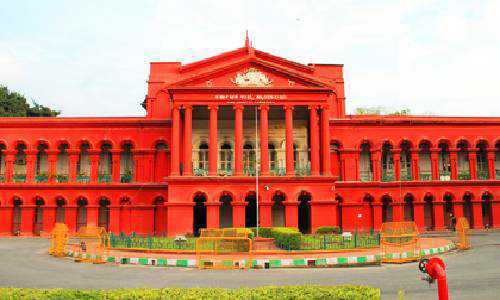
These two petitions, which involve the same parties and comparable concerns, have been brought up for resolution by this common order after being carefully studied together. Dr Vijay Mallya, the petitioner, intended to pursue an appeal before the Debt Recovery Appellate Tribunal, Chennai (DRAT), being AIR No.605/2017, against the decision made by the Debt Recovery Tribunal, Karnataka, Bangalore (DRT) in O.A.No.766/2013, which was issued on January 19, 2017. The petitioner filed an application seeking its restoration and a second application for a delay pardon after the said appeal was dismissed on 02.01.2018 due to lack of appearance and noncompliance with office objections. The DRAT, by its order dated 28.03.2018, then directed the petitioner to deposit a sum of Rs. 3,101 Crore on or before 25.04.2018. By a ruling dated April 25, 2018, the DRAT rejected the aforementioned application while stating that there was no merit to the requests for an appeal, restoration, or deferred pardon. The petitioner in W.P.No. 22111/2018 has challenged this order from April 25, 2018.
In the instant case titled Vijay Mallya v. State Bank of India, the issue raised for clarification before the High Court of Karnataka was:
Whether DRAT could have directed the petitioner to deposit a sum of 3,101 Cr?
With regard to this issue, the petitioner's argument that the DRAT could not have required him to deposit a sizable sum of money totalling Rs. 3,101 Crore as a condition of approving his application for the restoration of the appeal that was denied for failing to comply with office objections and for failing to prosecute appears to be overly technical and without merit. The application for restoration was filed on March 5, 2018, and the office objections in the appeal were corrected on March 21, 2018. The appeal was filed on October 4, 2017, and it was dismissed on January 2, 2018, for noncompliance with office objections and non-prosecution. These revealed circumstances led to a legitimate scepticism regarding the legitimacy of the proceedings and the petitioner's seriousness in pursuing his remedies.
In light of these considerations, the DRAT had, at its discretion, instructed the petitioner to submit the pre-deposit. This need must be read as the requirement of Section 21 of the Act for preserving the appeal and cannot be interpreted as a prerequisite for restoring the appeal. Contradictory claims would violate the rules of justice and the law. It is noteworthy that the petitioner did not come forward to deposit any money to demonstrate his legitimacy even before this Court. As a result, it is impossible to say that the DRAT's strategy is flawed. The discretionary ruling that the DRAT later issued on April 25, 2018, dismissing the petitioners' request for a time extension in IA No. 430/2018, also cannot be challenged for the same reason.
The Court categorically stated that,
“Noticeable it is that even before this Court, the petitioner did not come forward to deposit any amount to show his bona fide. Therefore, it cannot be said that the approach of the DRAT is flawsome. For the very same reason, the discretionary order subsequently made by the DRAT on 25.04.2018 dismissing the petitioner's application in IA No.430/2018 for an extension of time also cannot be faltered. In the given set of facts and circumstances, the observations in the Sterlite Technologies Limited case do not ensure the benefit of the petitioner”.
In light of the aforementioned facts, these Writ Petitions are dismissed because they lack merit.

